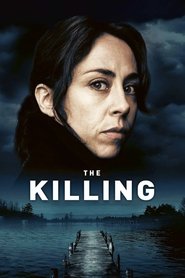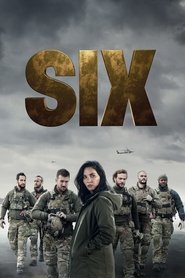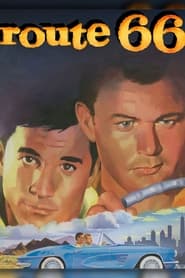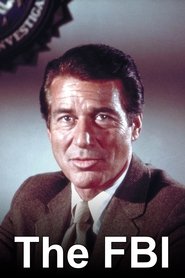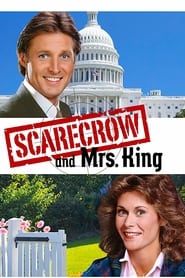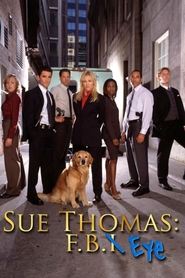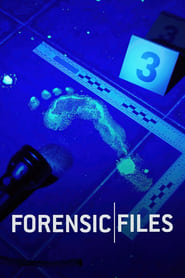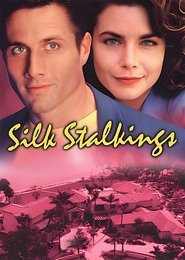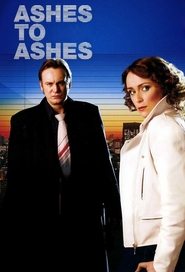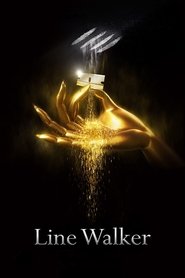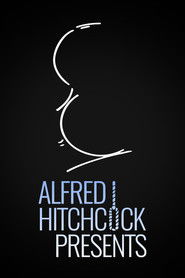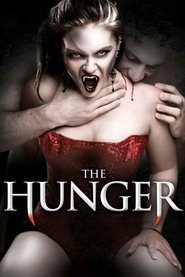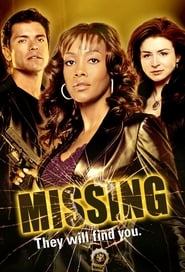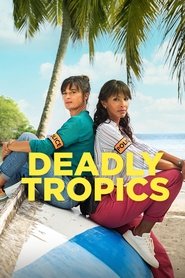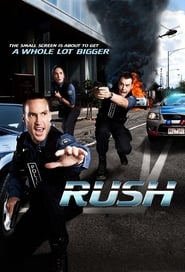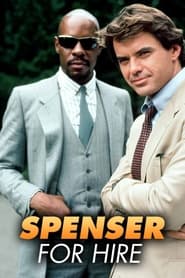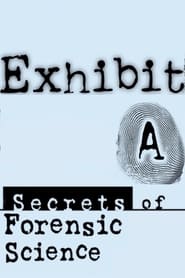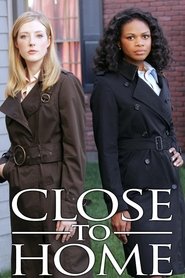Popular Crime TV Series on Tubi TV - Page 4
-
The Killing
2007
The Killing
2007
star 8The Killing is a Danish police procedural set in the Copenhagen main police department and revolves around Detective Inspector Sarah Lund and her team, with each season series following a different murder case day-by-day and a one-hour episode covering twenty-four hours of the investigation. The series is noted for its plot twists, season-long storylines, dark tone and for giving equal emphasis to the story of the murdered victim's family alongside the police investigation. It has also been singled out for the photography of its Danish setting, and for the acting ability of its cast. -
SIX
2017
-
Route 66
1960
Route 66
1960
star 6.3After discovering that his late father has gone through most of the family fortune, Tod Stiles hits the title trans-America highway in his Corvette in search of adventure with friend Buz Murdock, a survivor of New York's mean streets. The two work odd jobs as they meet and interact with colorful characters and find themselves plunged into one situation after another, some of them romantic, some of them very dangerous. Later, Linc Case, a Vietnam war hero trying to find himself, takes over as Tod's travel companion. -
The F.B.I.
1965
The F.B.I.
1965
star 5.4The F.B.I. is an American television series that was broadcast on ABC from 1965 to 1974. It was sponsored by the Ford Motor Company, and the characters almost always drove Ford vehicles in the series. Alcoa was co-sponsor of Season One only. -
Scarecrow and Mrs. King
1983
star 6.4Scarecrow and Mrs. King is an American television series that aired from October 3, 1983, to May 28, 1987 on CBS. The show stars Kate Jackson and Bruce Boxleitner as divorced housewife Amanda King and top-level "Agency" operative Lee Stetson who begin a strange association, and eventual romance, after encountering one another in a train station. -
Sue Thomas: F.B.Eye
2002
Sue Thomas: F.B.Eye
2002
star 7.1Based on a true story, this family-friendly series follows the adventures of a young, hearing impaired woman who has a special gift and goes to work for the FBI in Washington, D.C. She's one hard-headed, soft-hearted woman whose talent for reading lips helps crack crimes and bag the bad guys in places listening devices can't penetrate. With her hearing-ear dog, Levi, Sue's a glutton for jeopardy – and there's (almost) nothing she won't do to bring notorious criminals to justice. This remarkable, edge-of-your-seat drama is an inspiring tribute to the ability of the human spirit to overcome adversity and achieve great things. -
Forensic Files
1996
Forensic Files
1996
star 7.8Real crimes, disease outbreaks and accidents around the world are solved by experts using scientific laboratory analysis which helps them find previously undetectable evidence. Brilliant scientific work helps convict the guilty and free the innocent. -
Silk Stalkings
1991
Silk Stalkings
1991
star 6Silk Stalkings is a crime drama television series. The series portrays the daily lives of two detectives who solve sexually-based crimes of passion among the ultra-rich of Palm Beach, Florida. -
Ashes to Ashes
2008
Ashes to Ashes
2008
star 7.7Crime drama series featuring Life On Mars' DCI Gene Hunt. After being shot in 2008, DI Alex Drake lands in 1981, where she finds herself in familiar company. -
Line Walker
2014
Line Walker
2014
star 7.7Chief inspector of Hong Kong’s Criminal Intelligence Bureau, Cheuk Hoi, is suspicious of his close colleague’s mysterious death. Adding to the enigma, he discovers that the five undercover agents who were in constant contact with his dead friend have all vanished. -
Alfred Hitchcock Presents
1955
star 7.8A television anthology series hosted by Alfred Hitchcock featuring dramas, thrillers, and mysteries. -
Voice
2017
Voice
2017
star 7.3It's 3 minutes for hearers, but a life for the callers. A crime thriller chasing even the slightest sounds to rescue people's lives calling for urgent help. -
The Hunger
1997
The Hunger
1997
star 5.9The Hunger is a British/Canadian television horror anthology series, co-produced by Scott Free Productions, Telescene Film Group Productions and the Canadian pay-TV channel The Movie Network. Though it shares a title with the feature film The Hunger the series has no direct plot or character connection to the film, and was created by Jeff Fazio. Originally shown on the Sci Fi Channel in the UK, The Movie Network in Canada and Showtime in the US, the series was broadcast from 1997 to 2000, and is internally organized into two seasons. Each episode was based around an independent story introduced by the host; Terence Stamp hosted each episode for the first season, and was replaced in the second season by David Bowie. Stories tended to focus on themes of self-destructive desire and obsession, with a strong component of soft-core erotica; popular tropes for the stories included cannibalism, vampires, sex, and poison. -
Missing
2003
Missing
2003
star 6.8Jess Mastriani was a normal person who only wanted to take over her parents' restaurant in Indiana. But that changed when she was hit by lightning. After that she began seeing visions of missing people. Jess decides to use her newfound ability to be a consultant to the FBI, helping locate missing individuals. Eventually, she is hired by the bureau full-time and trained to become an agent, but her by-the-book nature sometimes clashes with the personality of her partner. Jess and her colleagues work out of the FBI's Washington, D.C., office. -
Deadly Tropics
2019
Deadly Tropics
2019
star 7On the Caribbean island of Martinique, in the middle of the tropics, several mysterious murders occur. Now it is up to the two investigators Mélissa Sainte-Rose and Gaëlle Crivelli to solve the case - even if the two women have very different views of law. -
Rush
2008
Rush
2008
star 7.4They are trained to be smarter, tactically superior and technologically advantaged - Melbourne's answer for a cutting edge trend in policing worldwide. Rush was an Australian television police drama that first screened on Network Ten in September 2008. Set in Melbourne, Victoria, it focuses on the members of a Police Tactical Response team. It is produced by John Edwards and Southern Star. On 10 November 2011, as with Network Ten setting out DVD promotions for the finale of season 4, David Knox of TV Tonight has announced that Rush would not return after 4 years, as the next episode would be its last. -
Spenser: For Hire
1985
Spenser: For Hire
1985
star 6.7Mystery and suspense series based on Robert Parker's "Spenser" novels. Spenser, a private investigator living in Boston, gets involved in a new murder mystery each episode. -
Exhibit A: Secrets of Forensic Science
1997
star 6A compelling, innovative true crime series focused on the role of forensic science in solving some of the most perplexing crimes of our time. Looking at how examination of DNA, teeth, and insects, among other things, can be used to solve crimes. -
Close to Home
2005
Close to Home
2005
star 5.9Close to Home is an American crime drama television series co-produced by Warner Bros. Television and Jerry Bruckheimer Television for CBS.
 Netflix
Netflix
 Amazon Prime Video
Amazon Prime Video
 Apple iTunes
Apple iTunes
 Apple TV Plus
Apple TV Plus
 Disney Plus
Disney Plus
 Google Play Movies
Google Play Movies
 Paramount Plus
Paramount Plus
 Hulu
Hulu
 HBO Max
HBO Max
 YouTube
YouTube
 fuboTV
fuboTV
 Peacock
Peacock
 Peacock Premium
Peacock Premium
 Amazon Video
Amazon Video
 The Roku Channel
The Roku Channel
 AMC+
AMC+
 Kocowa
Kocowa
 Hoopla
Hoopla
 The CW
The CW
 Vudu
Vudu
 Starz
Starz
 Showtime
Showtime
 PBS
PBS
 Pantaflix
Pantaflix
 FXNow
FXNow
 Tubi TV
Tubi TV
 Kanopy
Kanopy
 Comedy Central
Comedy Central
 Crunchyroll
Crunchyroll
 Microsoft Store
Microsoft Store
 Redbox
Redbox
 Sun Nxt
Sun Nxt
 ABC
ABC
 DIRECTV
DIRECTV
 Crackle
Crackle
 Fandor
Fandor
 Plex
Plex
